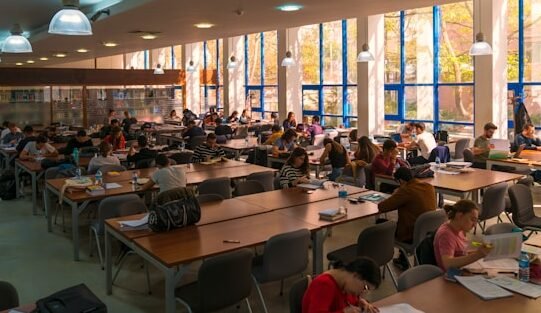Government app to replace paper GCSE results for students in Greater Manchester and the West Midlands
Thousands of Year 11 students in England will receive their GCSE results digitally this summer, as part of a government-backed trial that could eventually phase out the traditional envelope handover. The pilot, involving around 95,000 pupils across Greater Manchester and the West Midlands, will deliver exam results via the new Education Record app.
The app is designed to store verified exam data, allowing students to seamlessly use their results for college, apprenticeship, and job applications. Ministers say the change could streamline the process, saving an estimated £30 million annually—enough to fund over 600 new teachers in further education.
Currently, GCSE results are sent to schools, where students collect them in person. Those unable to attend can request results by email or post. The new app aims to modernise this process, but not everyone is convinced the digital leap is entirely positive.
Mark Giles, principal of Hathershaw College, welcomed the change: “We believe this will reduce administrative burdens on schools. In the future, it could also be utilised by parents to support transitions from primary to secondary education.”
But others warn the shift may rob students of a significant emotional moment. Jack Cronin, a head of physics in the South East, expressed concern: “It takes away a rite of passage. Collecting results at school is a big life marker. Even when results aren’t good, students find comfort in talking with friends face to face.”
Cronin also pointed out the increasing digitisation of teenage life: “Young people need to talk in real life. Having results on an app just brings more of their lives online.”
Embed from Getty ImagesEducation Minister Stephen Morgan defended the pilot: “It is high time exam records were brought into the 21st century. This will allow schools and colleges to focus on teaching rather than being bogged down by paperwork.”
The Education Record app is part of broader post-16 education reforms. The pilot’s outcomes may determine whether the system rolls out nationally, potentially covering the 850,000 to 930,000 pupils who sit GCSES and A-levels each summer in England. Together, they undertake between 6.5 and 7.5 million exams.
While the app is expected to offer convenience and long-term cost savings, some educators fear that moving too quickly could overlook the emotional and social aspects tied to traditional result days. Schools often provide in-person support for students disappointed by their outcomes, especially those who miss university offers or fail to meet predicted grades.
For now, the pilot will be watched closely, with educators, students, and policymakers debating whether the move towards digital delivery enhances the system or erodes a cherished tradition.
